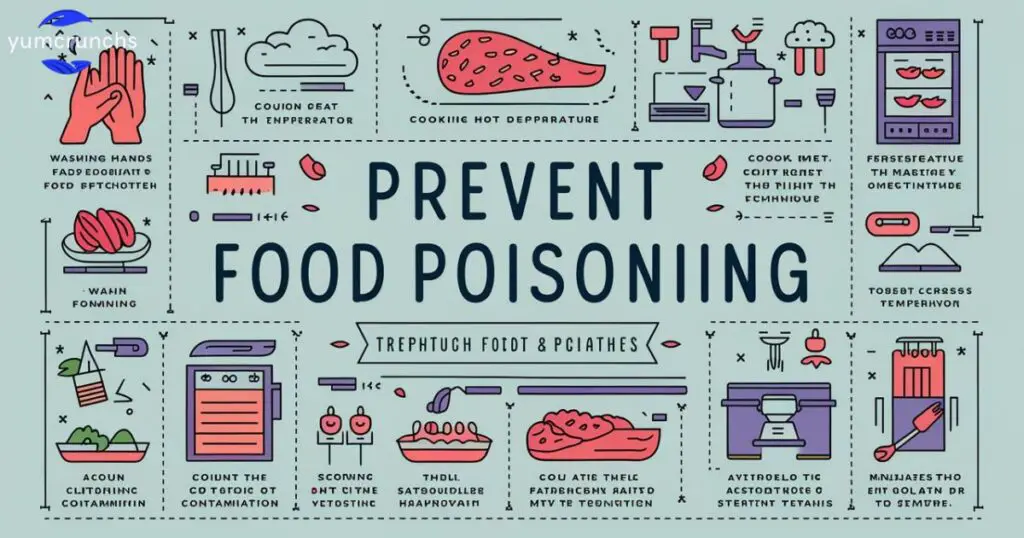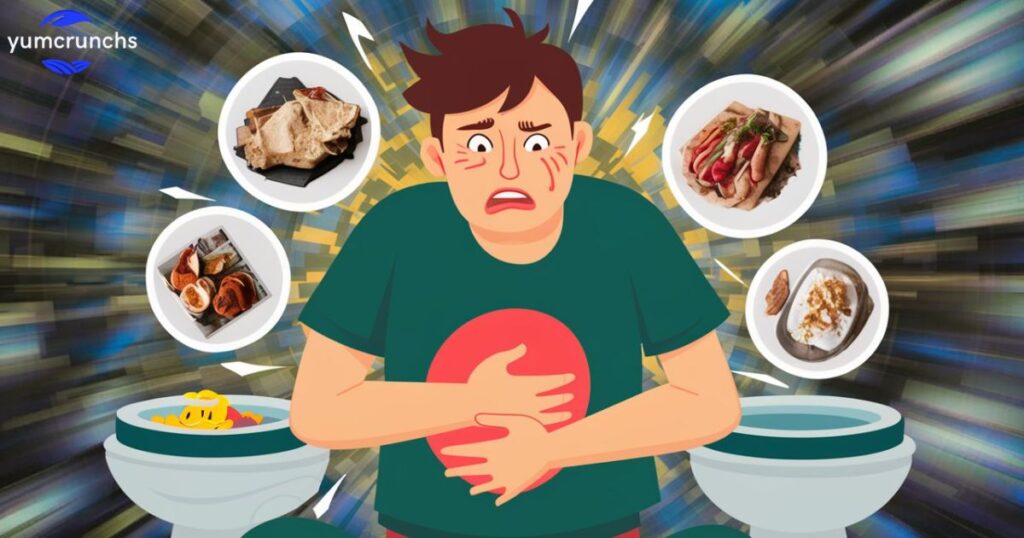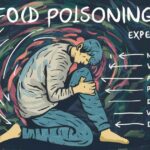Food poisoning symptoms refer to the various signs and discomforts experienced by individuals after consuming contaminated food or beverages. These symptoms typically arise due to the ingestion of harmful bacteria, viruses, parasites, or toxins present in improperly prepared or stored food.
Food poisoning symptoms can manifest in various ways, ranging from mild stomach discomfort to severe gastrointestinal distress. Imagine sitting down to enjoy a meal with loved ones, only to find yourself suddenly struck by nausea, vomiting, or diarrhea. These unpleasant symptoms often catch us off guard, disrupting our daily routines and causing significant discomfort.
Common signs of food poisoning include nausea, vomiting, diarrhea, abdominal pain, fever, and fatigue. While symptoms may vary in intensity and duration, it is essential to recognize them promptly and seek medical attention if necessary. By understanding these symptoms, we can take proactive measures to prevent foodborne illnesses and safeguard our health and well-being.
How Soon Do Symptoms Start?
Symptoms of food poisoning can appear rapidly after consuming contaminated food. In many cases, they may start within hours of ingestion.
The onset time can vary depending on the type of contaminant and individual susceptibility. Generally, symptoms begin between 2 to 6 hours after eating contaminated food. Food Poisoning
Food Poisoning Symptoms
| Symptom | Meaning |
| Headache | A pain or discomfort in the head or upper neck region |
| Muscle Aches | Soreness or discomfort in the muscles |
| Dizziness | Feeling lightheaded or unsteady |
| Weakness | Lack of physical or mental strength |
| Dehydration | Excessive loss of body fluids leading to thirst |
| Loss of Appetite | Lack of desire to eat or reduced interest in food |
| Confusion | Mental state characterized by disorientation or bewilderment |
This table provides additional symptoms associated with food poisoning, including headache, muscle aches, dizziness, weakness, dehydration, loss of appetite, and confusion.
Food poisoning symptoms can manifest in a variety of ways, often striking suddenly and causing discomfort ranging from mild to severe. The onset of symptoms typically occurs within hours to days after consuming contaminated food or beverages. While the specific symptoms can vary depending on the type of contaminant ingested and individual factors such as age and overall health, there are common signs that indicate food poisoning. Here’s a detailed look at the various Signs one might experience:
1. Nausea: One of the earliest and most common Signs of food poisoning is a feeling of queasiness or an urge to vomit. This sensation may occur shortly after consuming contaminated food and persist for several hours.
2. Vomiting: In more severe cases of food poisoning, vomiting may follow nausea. The body’s natural response to rid itself of toxins or harmful substances, vomiting can occur repeatedly and lead to dehydration if not managed properly.
3. Diarrhea: Another hallmark symptom of food poisoning is diarrhea, characterized by loose or watery stools. Diarrhea can be accompanied by abdominal cramps, bloating, and a sense of urgency to use the restroom.
4. Abdominal Pain: Many individuals with food poisoning experience abdominal discomfort or cramping. These pains can range from mild to severe and may be localized or spread throughout the abdominal area.
5. Fever: Depending on the type of bacteria or virus responsible for the food poisoning, individuals may develop a fever as the body’s immune system responds to the infection. Fever is often accompanied by other Signs such as chills and sweating.
6. Fatigue: Feeling unusually tired or lethargic is common during a bout of food poisoning. The body expends energy fighting off the infection, leaving individuals feeling weak and exhausted.
7. Muscle Aches: Some people may experience muscle aches or pains, which can be attributed to the body’s inflammatory response to the infection or dehydration.
8. Headache: Headaches are another possible symptom of food poisoning, often occurring in conjunction with other Signs such as nausea, vomiting, and fever.
9. Dehydration: Excessive vomiting and diarrhea can lead to dehydration, a serious complication of food poisoning. Signs of dehydration include dry mouth, excessive thirst, reduced urine output, dark-colored urine, and dizziness.
10. Loss of Appetite: Due to nausea, vomiting, and abdominal discomfort, individuals with food poisoning often lose their appetite and may have difficulty eating or drinking.
It’s important to note that the severity and duration of Signs can vary widely depending on factors such as the type and amount of contaminated food consumed, individual susceptibility, and promptness of treatment. While most cases of food poisoning resolve on their own within a few days with adequate rest and hydration, severe or persistent symptoms may require medical attention. If you suspect you have food poisoning, it’s crucial to stay hydrated and seek medical advice if symptoms worsen or if you experience signs of dehydration. Additionally, practicing food safety measures, such as proper food storage, handling, and preparation, can help reduce the risk of foodborne illnesses in the future.
infection that requires treatment.
Preventing Food Poisoning

Preventing food poisoning is crucial for maintaining good health. One essential step is to wash hands thoroughly before handling food.
Ensure that food is cooked to the appropriate temperature to kill harmful bacteria. Refrigerate perishable items promptly to prevent bacterial growth.
Additionally, practice safe food handling and storage techniques to minimize the risk of contamination. Following these guidelines can significantly reduce the likelihood of foodborne illnesses.
FAQ’s
Are food poisoning symptoms similar to the flu
Food poisoning symptoms can sometimes resemble those of the flu.
Can food poisoning symptoms come and go
Yes, food poisoning symptoms can come and go intermittently.
How quickly food poisoning symptoms
Food poisoning symptoms can manifest quickly, often appearing within a few hours of consuming contaminated food.
Conclusion
In conclusion, understanding food poisoning symptoms is essential for safeguarding our health. By recognizing the signs of nausea, vomiting, diarrhea, and abdominal pain, we can take prompt action to mitigate the effects of contaminated food. However, the question remains: what other measures can we take to prevent foodborne illnesses? Perhaps there are additional steps we can incorporate into our daily routines to ensure food safety for ourselves and our loved ones.
As we navigate the complexities of food preparation and consumption, it is crucial to remain vigilant and proactive. By staying informed about proper food handling techniques and maintaining hygiene practices, we can minimize the risk of food poisoning. So, what are your thoughts on this topic?

Daniel, a seasoned author with 8 years of expertise in SEO, brings a delectable blend of culinary flair and digital finesse to the food niche on his website.



